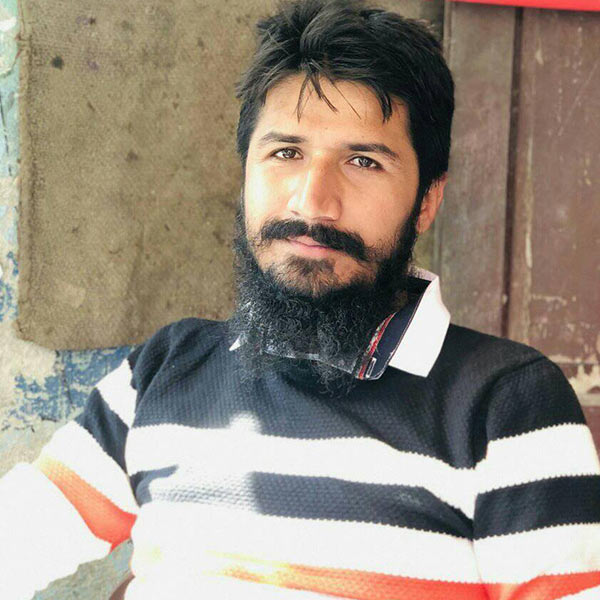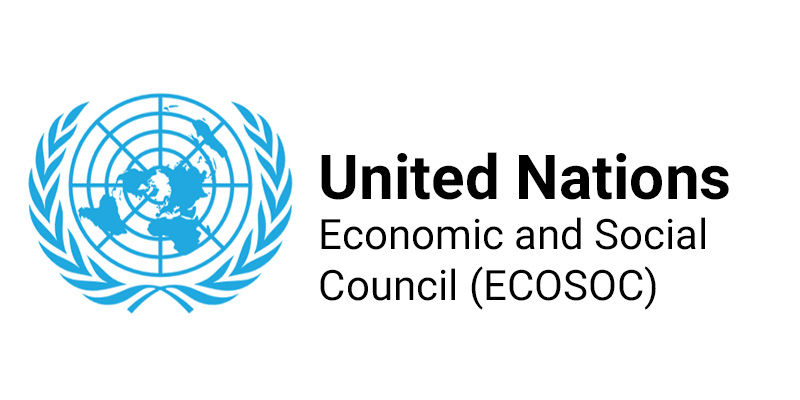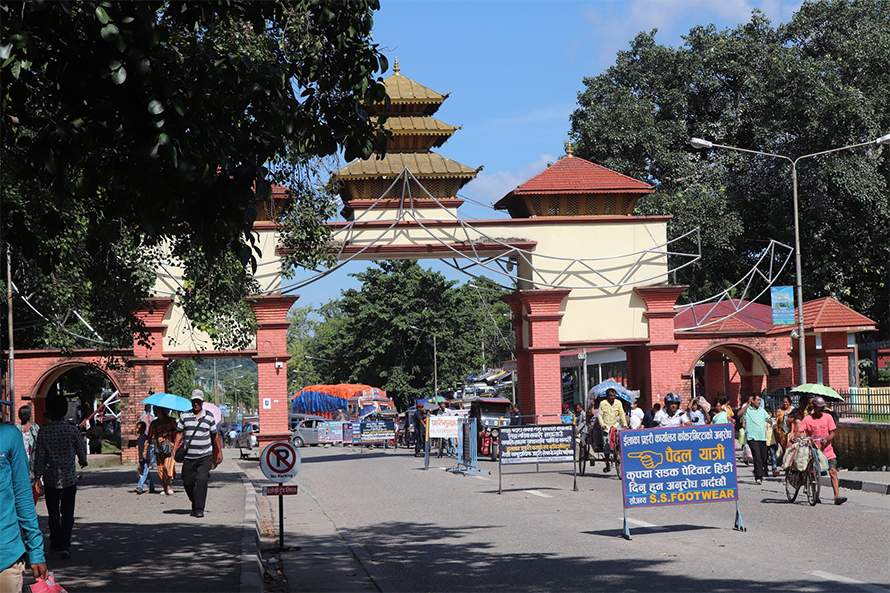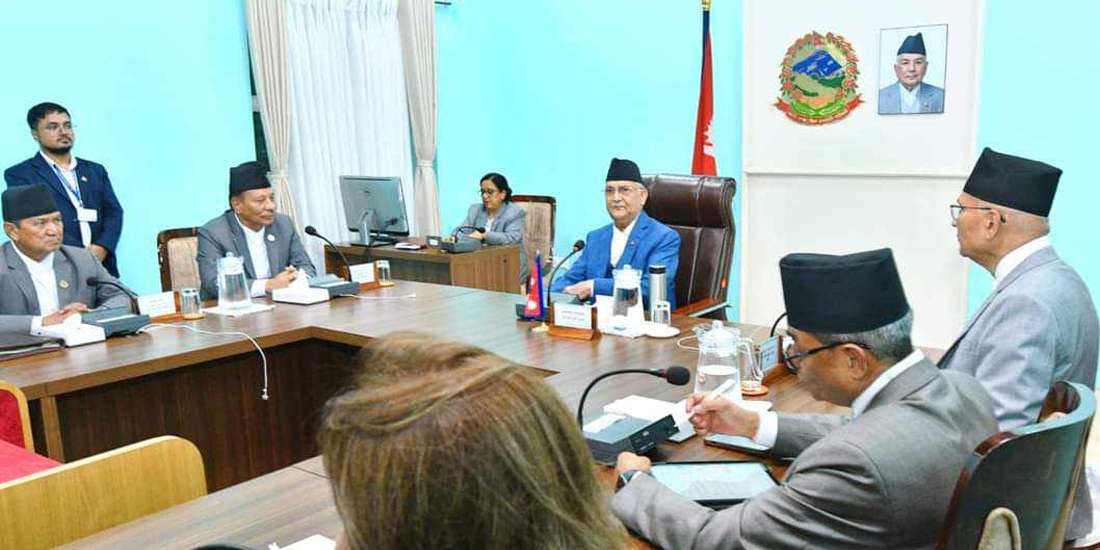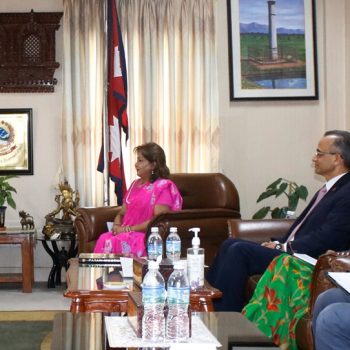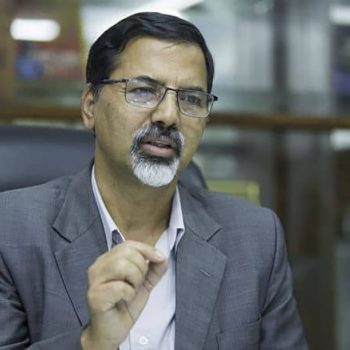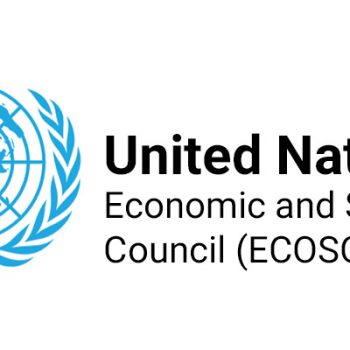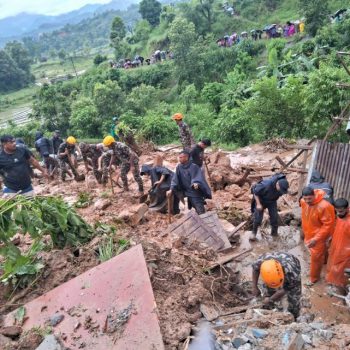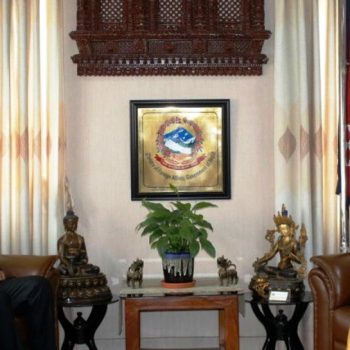Sri Lanka crisis exacerbated by the Rajapaksa dynasty, says Sri Lankan poet Kanchana
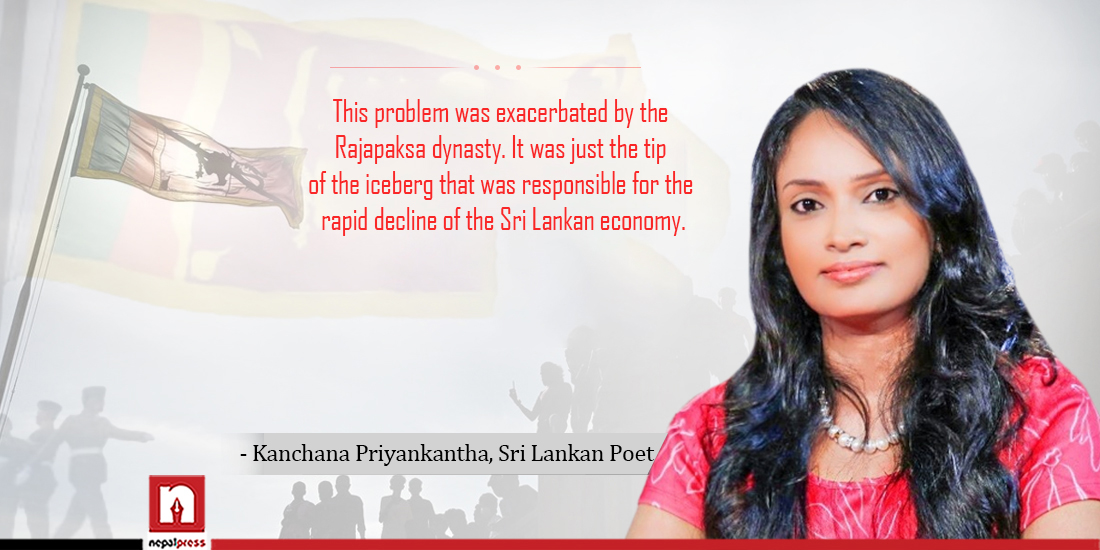
This interviewer has met Sri Lankan poet and publisher Kanchana Priyakantha in India and Nepal. The literary meet-up did not involve political talks and interpretations. This time, however, the talk is truly political. As a poet and publisher plus a citizen of the island nation of Sri Lanka, she has experienced Sri Lanka and its ongoing crisis from day one. In this email interview for Nepal Press, Kanchana has talked exclusively about the ongoing Sri Lankan economic crisis and the subsequent political instability, their causes and possible solutions.
Excerpts:
-Media outlets from around the world are showing bleak pictures of Sri Lanka like families skipping their meals, long queues to get just a liter of milk, people forbidden to refuel their vehicles and the government unable to print question papers, and the likes. Is it true or an exaggerated content? What do you see and experience on the ground?
Whatever you see on television is entirely accurate and not blown out of proportion in any way. My opinion is that the channels have not portrayed a sufficient amount of the reality and the difficulties that the people of Sri Lanka go through. You are compelled to go back home empty-handed even after standing in line for fuel for many days’ worth of time. The country’s economy has been severely damaged because of the fuel crisis that has been going on for the last several months. As a result of their rising costs, milk powder and other dairy products are now considered expensive commodities. We don’t produce paper here in Sri Lanka, so we are now experiencing a paper scarcity due to limited imports. As a direct consequence of this, paper has become so expensive and unaffordable. In a nutshell, the majority of Sri Lankans are suffering from a manmade crisis resulting from decades of mismanagement.
-President Gotabaya Rajapaksa escaped Sri Lanka from Sri Lanka Air Force aircraft to Maldives and sneaked into Singapore. Why did he did so? Was it extremely unsafe to stay in Sri Lanka even after his resignation? What is the grassroots sentiment?
He has immunity as President and is thus immune from arrest and legal action. Furthermore, he is the commander in chief in accordance with Sri Lanka’s constitution. And all the Triforces are to carry out his instructions. However, as soon as he leaves his position, he will resume his civilian status. I think he believed that if he submitted his resignation within Sri Lanka, he would be detained on suspicion of corruption. Therefore, he made the decision to leave the country. His instructions were executed by the Tri-Forces, so he made his way out of the nation safely. The Navy, Army, and Air Force collaborated to safeguard the president, who is the head of state under the constitution. He wouldn’t get any assistance from them if he quit inside Sri Lanka; instead, he would be regarded like any other civilian. Leaving the country should be purely his decision. The protests held in Sri Lanka were completely non-violent.
-What exactly is the reason, you think, for this economic crisis?
There are several main factors we can take into account for the collapse of the Sri Lankan economy.

A) Reduction in Foreign Currency Income
Sri Lanka was primarily reliant on foreign currency income from tourism, agricultural exports, and diaspora remittances. The tourism industry in Sri Lanka was badly affected by the 2019 Sri Lanka Easter bombings and it got worse during the COVID-19 Pandemic due to global travel restrictions. The tourism industry in Sri Lanka was generating approximately 4 billion USD per annum and a larger portion of this was lost from 2019 for 3 consecutive years. Agro and garment exports, on which Sri Lanka relied significantly, were affected by disruptions in the global supply chain caused by the pandemic. Even more distressing is the fact that diaspora remittances fell throughout the outbreak.
B) Trade Deficit
For its energy market (both fuel and gas), everyday essentials, and pharmaceuticals, Sri Lanka relies significantly on imports.
And throughout history, the trade deficit has always represented 7% to 10% of the GDP (5-8 billion USD per annum). (Ref-https://www.macrotrends.net/countries/LKA/sri-lanka/trade-balance-deficit)Since 1977, every single government has had to borrow money in a foreign currency, either via the sale of sovereign bonds or by taking out loans in a foreign currency. And currently Sri Lanka has a total of 52 billion USD as external debt where Sri Lanka should pay approximately 7 billion USD per annum as debt repayments (capital and interest). The worst of it is that Sri Lanka has borrowed new foreign currency loans and issued sovereign bonds to repay the old liabilities.
C) Budget Deficit
Sri Lanka is a classic example of a country with a Twin Deficit. Trade deficit and budget deficit. As soon as the Gotabaya Rajapaksa assumed duties as the President in 2019, he has given a huge tax
Cut which resulted almost a 50% reduction in the government income (1025 billion LKR in 2019 to 524 billion LKR in 2020). However the average government expenditure is around 1500 billion LKR and the government had no other option but to print more money, nearly 1 trillion LKR with low foreign currency reserves and income. And this resulted in the high inflation situation in the country. They thought that the Modern Monetary Theory (MMT) would work and they made 3 enormous mistakes when applying MMT.
- Print Money in LKR without foreign currency reserves/gold reserves to pledged against.
- Keeping the exchange rate fixed under the formal banking system resulted in money transfers via illegal channels such as Undial and Hawala
- Not adjusting the borrowing rates to match with the inflation rate
D) Organic Fertilizer initiative–Due to dwindling foreign reserves, Gotabaya Rajapaksa’s administration enacted a ban on chemical fertilizers, weedicides, and pesticides in an effort to minimize import costs. This has had a detrimental influence on rice, vegetables, and all other agro-exports, including tea, which accounts for yearly exports of $1.4 billion USD..
E) Mismanagement/Corruption–Sri Lanka has a long history of mismanagement of public funds and corruption by politicians and government officials. It is said that there are multi-billion dollar corruption charges against the Rajapaksa regime, including top ministers, MPs, and government officials. From procurement to execution, they have utilized the loopholes in the government protocols and procedures and mismanaged the funds for their personal benefits.
F) White Elephant Mega Projects
Since 2010, Sri Lanka has taken out large amounts of foreign currency loans from China at exorbitant interest rates in order to fund a variety of infrastructure development projects, including the construction of highways, landmarks, artificial islands, ports, and airports. Most of these endeavors did not contribute even a single dollar to the national economy, but rather resulted in increased debt and interest payments. Some claim this is a debt trap set by China. But the government of Sri Lanka is ultimately responsible since they made the policy choices that led to these initiatives.
-On 12 May President Gotabaya Rajapaksa appointed Ranil Wickremesingha as the new Prime Minister after the publicly pressured resignation of Mahinda Rajapaksa. Why are people again asking for the resignation of Ranil?
Ranil Wickremesingha was appointed as PM by Gotabaya Rajapaksa and the Rajapaksa regime with the help of his majority in Parliament. This appointment was made possible by Gotabaya Rajapaksa. Ranil Wickremesingha, who received barely 2.15% of the vote in the last elections, was the lone MP from the United National Party and never had a mandate.
The people demonstrating in Aragalaya have thus demanded that he be removed from his position as Prime Minister on the grounds that he lacks the ethical legitimacy to do so. On top of that, he has served as Prime Minister of Sri Lanka five times and has failed miserably each time to uphold the responsibilities that came with the position. Therefore, people do not really have high hopes that Ranil Wikremesingha would be the one to devise an escape plan for Sri Lanka in this precarious scenario.
-People from around the world are pinpointing the Rajapaksa dynasty for all these wrongs. What is your opinion on this issue?
This problem was exacerbated by the Rajapaksa dynasty. It was just the tip of the iceberg that was responsible for the rapid decline of the Sri Lankan economy. On the other hand, whoever has been in power ever since the open economy was first implemented is equally to blame for this disaster. While other Asian nations, such as India, China, Singapore, Vietnam, Malaysia, Thailand, Indonesia, and Cambodia, are making the shift to a global production and service economy, policymakers in Sri Lanka have had a difficult time establishing a fundamental policy framework for economic expansion. In addition, they have failed to carry out crucial constitutional changes as well as other reforms needed to protect human rights, equality (gender, religious, and racial), education, law, and justice in Sri Lankan society.
-Sri Lanka is composed mainly of Buddhist majority Sinhalese, Hindu Tamil and Muslims. Are they on the same page in this ongoing protests in the Sri Lankan streets, presidential palace and other administrative hubs? Or, do they have different takes on the ongoing ire?
Each and every one of them is asking for exactly the same thing. They are all looking for a nation free of corruption. A nation where there is no discrimination based on gender, religion, or race; a nation in which members of the general population are given precedence over politicians in terms of both treatment and access to resources; a nation that has an education system that competes internationally; a nation that can successfully compete in the global markets because it has a well-defined economic strategy and vision; a nation that prioritizes maintaining peace for them and for future generations. This is what they expect, and in addition to this, they need a clear policy framework and activities to put this into effect.
-You are a good poet. What is the direct impact on the literary world of Sri Lanka, especially poets from this crisis?
Everyone is being hammered hard by this crisis, but the publishing sector took particularly significant damage as a direct result of the paper scarcity that devastated the literary world. Since the beginning of 2022, there have only been a few new books released in any category at all. This applies to all types of publications. This has a detrimental effect on booksellers, publishers, and authors, all of whom are directly dependent on the publishing sector for their revenue. However, poets have a lot to say about protestors right now, and as a whole, how can Sri Lanka possibly recover from this? Therefore, based on my own experiences and observations, I consider this to be an opportunity that is contributing to the nation’s overall progress.

-What is the reaction of the literary world of Sri Lanka on this crisis? How are they reacting?
They say ‘you will have your greatest chance for innovation during a time of crisis.’
And, because of the shortage of paper, it has led to a significant decline in the publishing business. On the other hand, it will open new doors for digital publication, making it possible for authors to publish their works in digital formats such as eBooks and audiobooks. I have come across a few Sri Lankan firms that are working on digital reading platforms, and I am positive that they will provide reasonably priced reading material in the event of a financial crisis such as the one we are currently experiencing. Reading is the bridge that links society and ongoing education as a kid or as an adult. Education is the country’s backbone, and reading is the bridge that connects society and education.
-Sri Lanka does have a good diaspora from Europe to America. What is their response and reactions on this crisis?
There are more than 3 million Sri Lankans residing abroad. They, too, want system reform and are willing to help their country by sending or investing their hard-earned money. They want the government to make changes to the constitution and implement sound economic policies to keep the nation secure. Therefore, getting the changes finished as quickly as possible is mostly a political choice that is being made in order to improve trust among investors both domestically and internationally. The pool of potential employees in Sri Lanka has a high level of education. The government of Sri Lanka has to act fast in order to maximize the return on investment from its existing talent pool and generate more foreign currency.
-What is the domestic media reaction in the crisis?
It is hard to find independent media in Sri Lanka. As I have observed, most radio, television, and newspapers are executing political agendas and are frequently biased. The media companies, which are under the government, are not supporting the protest at all. On the other hand, they have a few privately held media companies and some media that support the opposition and stand with the protesters. In addition, the protesters were utilizing social media and other digital channels to get updates and to make the public aware of the situation.
-What is the way out for the crisis in Sri Lanka? What are the recommendations and suggestions of Sri Lankan public intellectuals and economic as well as political experts?
Experts have come up with several ways to get out of the crisis.
1. Political Stability
As the International Monetary Fund (IMF) has said, the first thing that they are looking for in the country is political stability before they would contemplate offering a bailout. With the present make-up of parliament, many political analysts recommend forming an all-party temporary administration to get the country through until the next general election. Some individuals have also proposed doing away with parliament and putting greater power in the hands of a government elected directly by the people. As a result of their lack of faith in the manner in which the government will spend the money that will be coming into the country as a result of the bailout, the International Monetary Fund (IMF), the World Bank, and Asian Development all recommend that a transparent economic and monetary policy be implemented.
2. Battling the Inflation
This is the monetary policy and revising the interest rates according to the inflation rate on a regular basis. This will reduce the money supply within the economy and control inflation. This will also ensure that the government can raise capital with government securities in the open market and hence reduce money printing for government expenditure.
3. Exchange Rate
The LKR/USD exchange rate should never be fixed; rather, it should be allowed to freely fluctuate in response to market forces affecting demand and supply of foreign currency. It is unacceptable for the government to artificially maintain this status quo at any time. In addition, the government should take measures to promote exports and remittances coming into the country.
4. Debt Restructuring
China has rebuffed Sri Lanka’s request to restructure its debt, citing the possibility of being obliged to do so with other default-prone nations. However, they are prepared to provide a fresh loan to repay the existing ones. On the other hand, the Paris Club has already indicated that it is open to discussions with the government of Sri Lanka, and analysts agree that there is a potential for renegotiating Sri Lanka’s debt with the other member nations. The government will have to negotiate a haircut or an extension of the maturity date with each sovereign bondholder individually.
5. Increasing Government Income
The government will need to increase tax rates in order to lower the budget deficit and stop the money printing that is fueling excessive inflation. On the other hand, the government should investigate the possibility of obtaining funds via the sale of government securities. In addition, there are several firms controlled by the government that are operating at a loss; thus, the government needs to take measures to either wind them up or privatize them in order to save financial resources.
Alternatively, the government may need to lay off more personnel at each government entity in order to minimize its expenditures.
6. Exports
To increase the amount of foreign money pouring into the nation, Sri Lanka should concentrate more on exporting value-added finished goods rather than bulk and raw material exports. There is a tremendous opportunity for Sri Lanka in the international market for e-commerce, which is now valued at 9 trillion US dollars and is expected to grow at a compound annual growth rate of 14.7 percent. Asia-Pacific currently accounts for close to 35 percent of the international market for e-commerce.
7. Imports
Sri Lanka will have to focus on reducing the trade deficit by limiting certain non-essential exports, which the government has already done. Moreover, Sri Lanka should focus on importing substitutes to limit the amount of foreign currency flowing out of the country. As per the experts, once the debt restructuring is done, Sri Lanka will soon have to start repaying the debt. And as per the experts, the government should be ready for this with a proper action plan to preserve foreign currency for debt repayments while importing only essentials.
8. Energy Sector
In order to generate electricity and run its transportation network, Sri Lanka is highly reliant on the use of fossil fuels. For many years, it has been told how important it is to switch to renewable and alternative energy sources to cut down on fossil fuel, coal, and cooking gas imports. Only 20% of Sri Lanka’s electricity is produced by hydropower, and experts recommend switching to more renewable energy sources like solar, wind, and biomass gasification, which not only protects foreign currency but also offers more environmentally friendly options. In order to cut down on the nation’s reliance on imported fossil fuels, a number of industry professionals are advocating for the development of domestic bio-fuel production facilities; however, some specialists are opposed to this idea on the grounds that there is a restricted supply of arable land in the country. As well as be put to use in order to nourish the population.
Several environmentalists are opposed to some programs that aim to generate biogas (methane) in houses; this is because methane is regarded as a greenhouse gas. However, there are some initiatives aimed to do just that.
9. Agriculture Sector
The agricultural industry of Sri Lanka does not make use of the latest technical breakthroughs and has to go through a process of modernization in order to boost both production and output. This includes the introduction of modern machinery and equipment; modern irrigation techniques; soil conservation and crop rotation; methods to increase the arable land; the use of IoT for farming in monitoring the fields; the development of high-yield crop varieties; and so on. Additionally, this includes initiatives to encourage large-scale agricultural investments in order to achieve greater economies of scale. These strategies would assist in lowering the overall rate of food inflation while also helping to assure food security across the nation.
10. Services Sector/Tourism
Experts in the information technology and business process outsourcing industries recommend formulating a strategy for increasing the number of multinational corporations that outsource their development centers, customer support, and other business processes like accounting and finance to organizations headquartered in Sri Lanka.
With inexpensive home rents and a low cost of living, Sri Lanka would be an excellent location for digital nomads. There is a rapidly increasing market for digital nomadism internationally, and Sri Lanka would be an ideal destination for digital nomads. At the present, there are several start-ups in and around Colombo that are making this feasible by providing an increased number of co-working spaces; ideally, this should be spread to other regions of the nation. In addition, Sri Lanka has to put more effort into luring visitors from India and China, where there is a sizable Gen Y population that has more disposable income to spend on leisure activities and travel experiences. To better cater to the varying requirements of tourists, Sri Lanka’s tourism sector should be more broadly diversified.
11. Investments
According to analysts, the doing business index in Sri Lanka has to be improved, and steps should be taken to increase investor trust in the country. And an action plan for the political stability of the nation should be the first step in this process. BOI Sri Lanka needs to take an active part in this process so that it may be completed in a relatively short amount of time.
12. Startups
The global startup ecosystem is growing rapidly, and there are billions of dollars available for startup funding through venture capital firms and angels. Sri Lanka’s high-skilled talent pool in the IT sector and the low operational costs means Sri Lanka can easily attract some of these businesses that have got startup funding in the millions of dollars. Moreover, local startups should be empowered by giving them access to seed funding and training locally in the seed stage to make them ready to expand globally with more funding from global VC. Ideally, Sri Lanka should become the startup hub in Asia.
-What is your expectation from the new president? Does he manage this crisis?
We anticipate that the newly elected president will be able to handle this problem and bring about the constitutional changes that he has been campaigning to bring about. For the time being, I would prefer not to elaborate any more, particularly on his capacity to establish a new country.
-Anything you want to share which is not included in above questions.
Several nations in the history of the world have gone through severe economic crises, similar to what Sri Lanka has gone through.
And in the majority of cases, it has taken anywhere from ten to fifteen years for the economy to recover, even with responsible political leadership, democracy, a policy framework with openness and accountability, IMF bailouts, debt restructuring, and exit strategies like those mentioned above for long term financial and debt sustainability. Countries that were unable to achieve the aforementioned requirements were caught in a vicious cycle of hyperinflation for many years, which caused a great deal of suffering for a great number of their population. It is more the obligation of the people of Sri Lanka to pick leaders who are accountable and who are capable of truly accelerating the process of the economy’s recovery as it is dying. Your vote counts, and in order to safeguard your future, you should cast it in a responsible manner.


